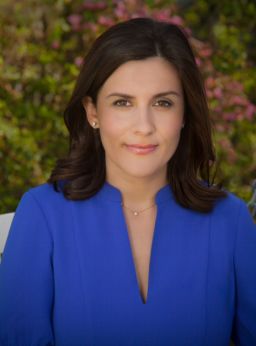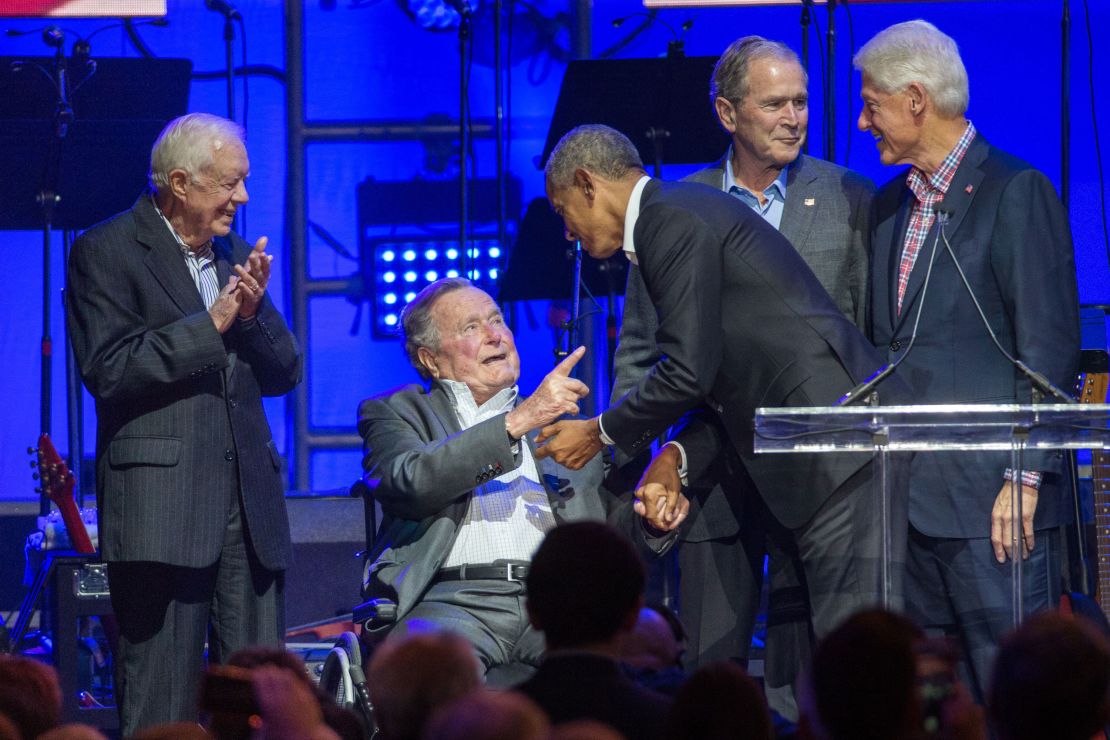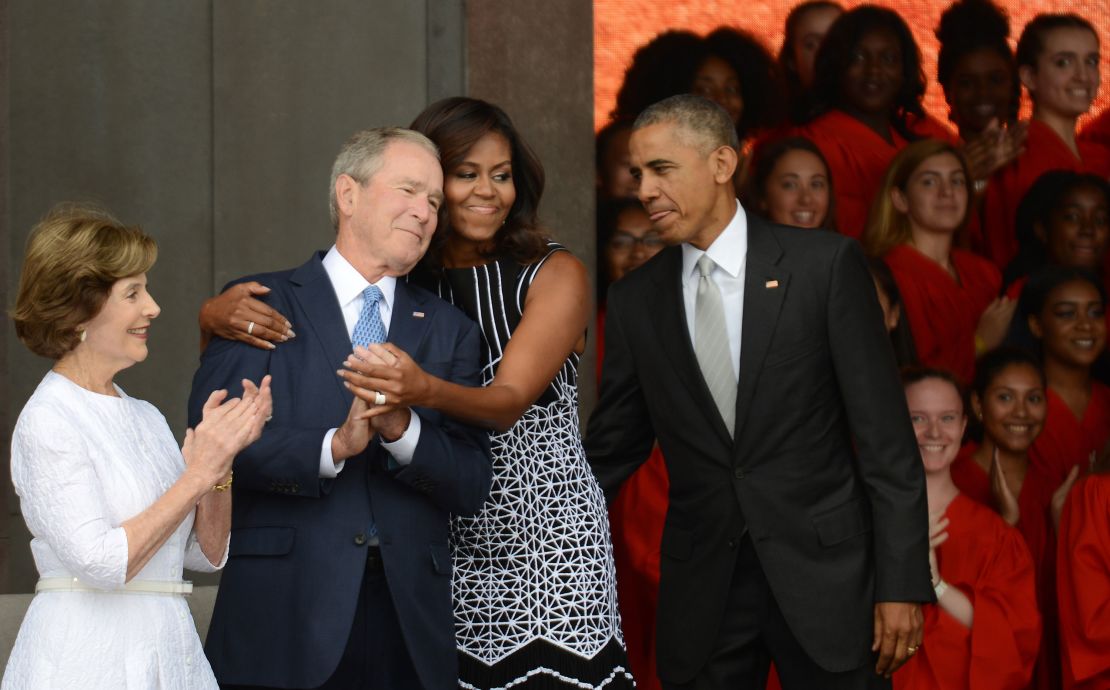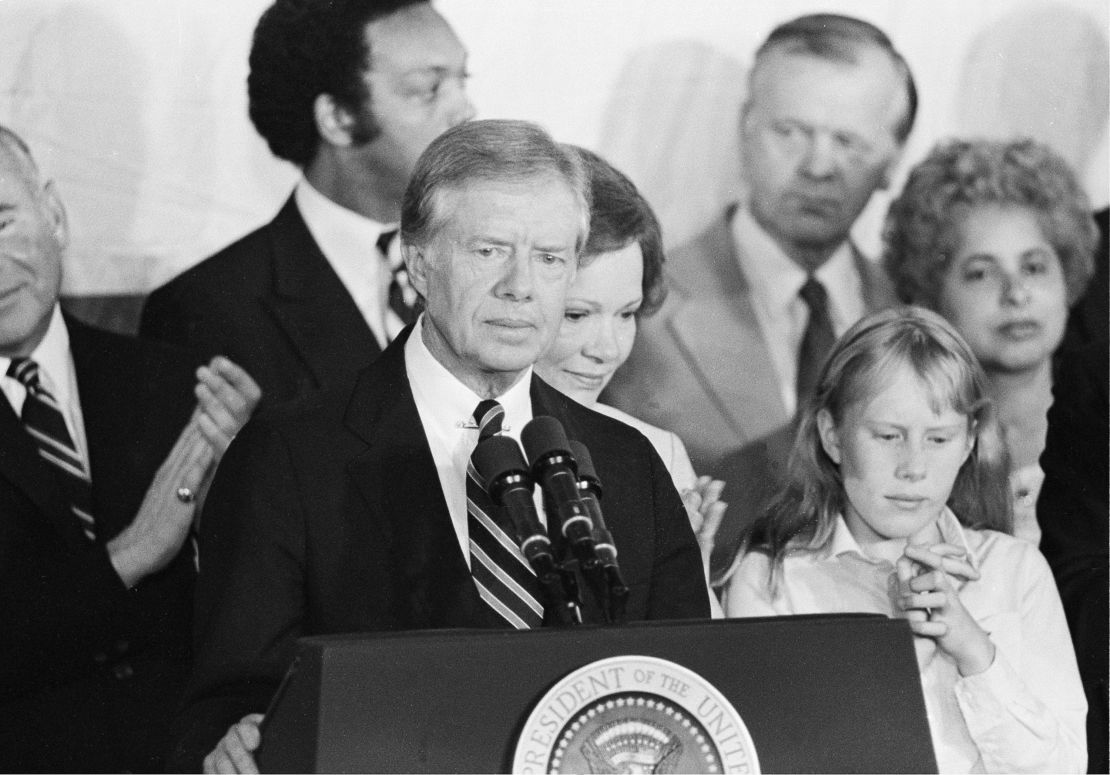Editor’s Note: Kate Andersen Brower is a CNN contributor and the author of “Team Of Five: The Presidents Club in the Age of Trump,” “First Women: The Grace and Power of America’s Modern First Ladies,” “First in Line: Presidents, Vice Presidents and the Pursuit of Power,” and “The Residence: Inside the Private World of the White House.” The opinions expressed here are hers. Read more opinion on CNN.
No modern president has lost re-election without grieving privately. The morning after the 1980 election, when Ronald Reagan defeated Jimmy Carter in a landslide, Carter’s communications director, Gerald Rafshoon, went to visit the president, who was sitting with bloodshot eyes in the Oval Office. “Forty-one million, six hundred thousand people don’t like me,” Carter lamented. That number was actually larger, Reagan won 44 million votes to Carter’s 35.5 million votes.

But Carter, like Gerald Ford before him and George H.W. Bush after him, accepted the humiliating loss. We suspected that Donald Trump would not be so graceful about accepting defeat. But he is turning out to be the first president who will be dragged kicking and screaming into the Presidents Club.
“This is a case where they’re trying to steal an election, they’re trying to rig an election, and we can’t let that happen,” Trump said in the White House Briefing Room on Thursday evening, providing no evidence to back up his incendiary claims that he is being cheated out of a second term. He was doing what he had threatened to do all along, but it was still startling to hear him say it. This after walking into the East Room early Wednesday morning to deem the election a “fraud” and saying he wanted vote-counting to stop. Seeking to derail the peaceful transfer of power central to our democracy is something no other president has done - or would condone.
We always knew he would be a sore loser. “Winning is easy,” he said Tuesday on a visit to his campaign headquarters. “Losing is never easy. Not for me it’s not.”
He clearly is not looking forward to entering the Presidents Club, where he will join Carter as the only other living one-term president.

One overlooked casualty of Trump’s upturning of many presidential norms is the way he has also upended the norms among the living former presidents: Jimmy Carter, Bill Clinton, George W. Bush and Barack Obama. These men have traditionally enthusiastically welcomed one another, regardless of party, into the world’s most exclusive club. Surely Trump will not receive a similarly warm welcome. He accused his immediate predecessor of wiretapping his office ahead of the 2016 election and called his most recent Republican predecessor’s invasion of Iraq “the single worst decision ever made.”
In an Oval Office interview with the President in 2019 I asked him how he thinks he will fit in in the exclusive club one day. “I don’t think I’ll fit in very well,” he said with a smile. The scorched-earth path he’s chosen has made it impossible to maintain any friendships, or even civility, with his predecessors. And now that his entry into the club seems imminent it is impossible to ignore.
“I’m a different kind of president,” he told me. And fractured relationships are to be expected. He said he and Bill Clinton had once been good friends, “until I decided to go into politics.” When I asked Trump if he could see himself becoming friendly with a former president after leaving office, or rekindling a friendship with Clinton specifically he said, “It’s possible. Anything’s possible.” But I can’t imagine it.

Being inaugurated into the club, largely built on ceremony and mutual respect, brings up a host of questions, including whether he would go to Obama’s presidential library opening. Presidents have always attended one another’s library openings as a sign of respect. “I don’t know,” Trump told me. “He probably wouldn’t invite me.” He mulled it over for a moment and said, as though he had never thought of the far-reaching ramifications of his ostracism from the club, “Why should he [invite me]?” It was an astonishing reminder of just how much has changed.
Trump seems proud of his likely ostracism from the Presidents Club, and his contempt for his predecessors is obvious. He told me he has not “asked anybody for advice,” and he does not care about having subverted the long-standing club.
'First Ladies'
“We all love our country, but we all have different visions and we have different ways of doing things, and in a way we’re competing with each other. We shouldn’t be – we should be able to do this without competition, because there should be only one goal – but we have different ways and very different philosophies and different end results and different ways of getting there, too, very,” he said with a shrug of his shoulders. Members of the club have managed to rise above their political differences. In his 2009 inaugural address, Obama criticized the “collective failure” of the Bush era. Now the two men appear in public like old friends and images of Michelle Obama and George W. Bush, who she calls a “wonderful man,” have gone viral.

The context for considering whether he will fit into the club has implications beyond just that; the question is whether he poses a major national security risk. Joe Biden will face the vexing and – given Trump’s uniquely compromised stature – unprecedented decision of whether to allow his predecessor to receive intelligence updates, which has long been standard operating procedure. Trump’s unusually close relationship with Russian leader Vladimir Putin, even as the intelligence community says that Russia continues to interfere in our elections, makes continued access a potential cause for concern.
Traditionally, presidents allow their predecessors to be briefed because former presidents often meet with foreign leaders. That access can be limited or cut off entirely. It is totally the sitting president’s prerogative.

Former presidents have sometimes felt aggrieved, but no president has ever cut off his predecessors from receiving information. In the months after taking office, Reagan would not send Carter even the perfunctory daily briefings provided to a hundred top government officials until Carter complained to Jody Powell, who had been his White House press secretary. As Rafshoon told me, when Powell let Reagan aides know he was getting ready to go to the press unless the briefing papers started arriving, they miraculously appeared. It was especially galling since, when Carter was president, he sent Richard Nixon so many briefings that Nixon pleaded with him not to send them so often.
Even George H. W. Bush, who held fast to the rules of the Presidents Club, which include refraining from criticizing the sitting president, had trouble adjusting to the reality of becoming a one-term president. Chase Untermeyer, a longtime aide to the elder Bush, told me he visited the Bush family compound in Kennebunkport in June 1993, a few months after the Bushes left Washington, while Bush was “still in the dumps” after having lost to Clinton. But Clinton knew he needed Bush’s support.
When Israeli prime minister Yitzhak Rabin and Palestinian leader Yasser Arafat came to meet for the first time at the White House in 1993, Clinton’s Chief of Staff Mack McLarty called Bush and invited him to be part of the historic event. It would mean returning to the White House less than a year after he was forced out of it. The Clintons invited the Bushes to stay overnight, but the former president declined. He said that his wife, Barbara, would not want to go back.
Finally, McLarty called Bush’s best friend, former secretary of state James Baker III, who convinced Bush to accept the invitation. McLarty said he would have the plane ready for him. McLarty recalled that Bush replied, with an edge to his voice, “Just a tiny little plane for me.”
George W. Bush’s former press secretary Ari Fleischer put it well when he said, “There is a nice nonpartisan loftiness you hope exists among the ex-presidents—they don’t take potshots at their successors. Isn’t it nice to have one island of people who behave?”
It looks like that won’t be the case for long. Whether he likes it or not.
















